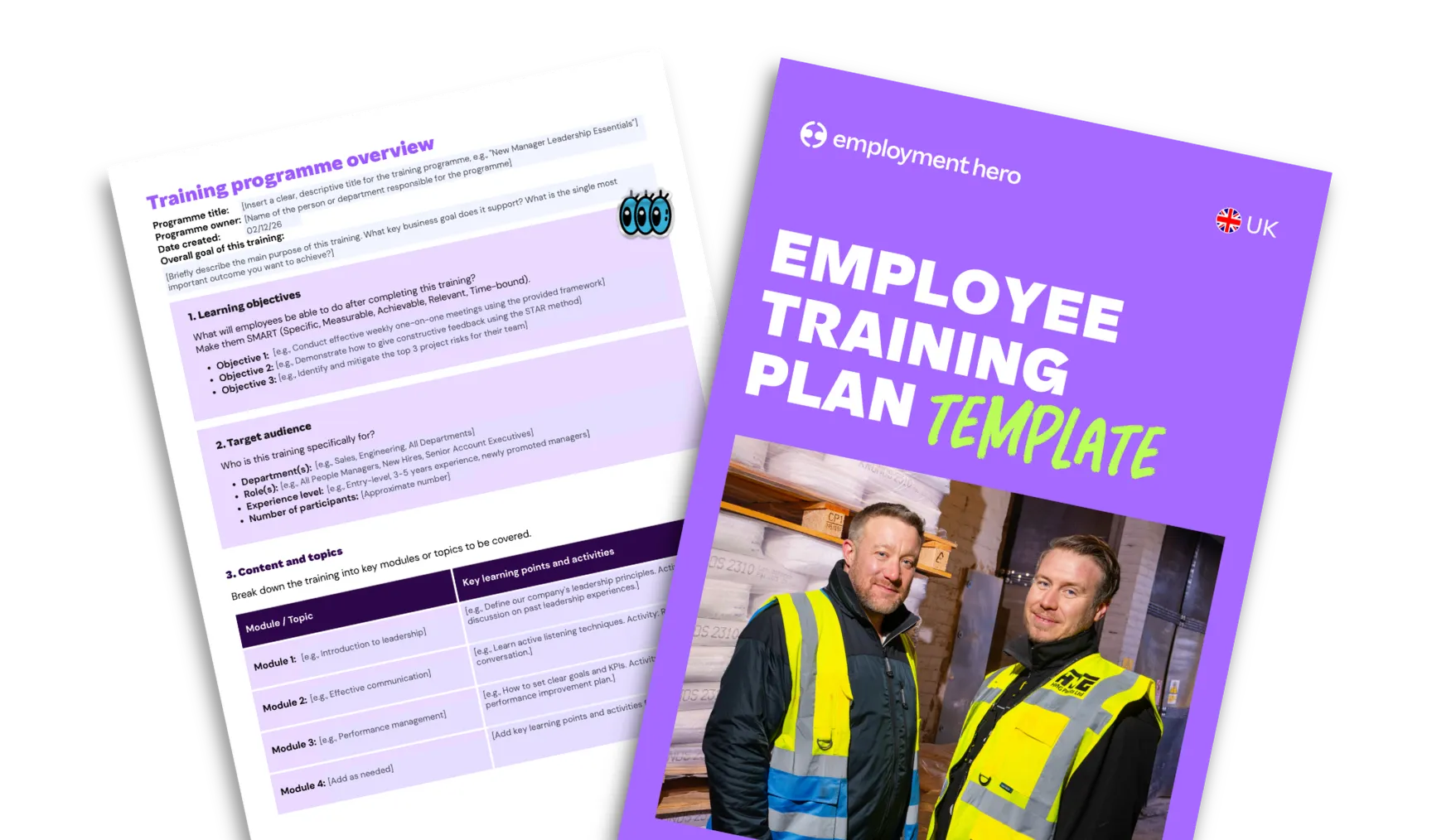Salary Sacrifice Scheme: An Employer’s Guide
Published
Salary Sacrifice Scheme: An Employer’s Guide
Published
1 min read
Salary sacrifice schemes can be a smart and strategic way for employers to enhance their benefits offering, while managing costs. When implemented correctly, these arrangements can support business growth, improve employee satisfaction and ensure payroll efficiency.
In this guide, we break down:
- What a salary sacrifice scheme is.
- How it works.
- What you need to consider as an employer.
What is a salary sacrifice scheme?
A salary sacrifice scheme is an agreement between an employer and employee where the employee gives up a portion of their gross salary in return for a non-cash benefit. This benefit could include things like pension contributions, childcare vouchers, cycle-to-work schemes or electric car leases.
The key feature of salary sacrifice is that the reduction in salary happens before income tax and National Insurance (NI) are applied. This can lead to tax and NI savings for both the employee and the employer.
Examples of salary sacrifice in action
Salary sacrifice can be used for a range of benefits, depending on your company’s policy and the employee’s eligibility. Common examples include:
- Pension contributions: Boosting retirement savings through tax-efficient pension top-ups.
- Cycle to work schemes: Helping employees access bicycles and equipment for commuting.
- Electric vehicle leasing: Providing eco-friendly travel options at a reduced cost.
- Childcare vouchers: Although now closed to new applicants, some employees remain eligible under legacy schemes.
Each of these examples can support employee wellbeing while offering potential savings.
How salary sacrifice benefits employers
There are several key benefits for businesses that offer salary sacrifice, including:
- Tax and NI savings: Employers pay lower Class 1 NI contributions on the reduced salary.
- Improved employee benefits package: A cost-effective way to expand your benefits without increasing salaries.
- Recruitment and retention advantages: Salary sacrifice can make your benefits package stand out in a competitive job market.
Salary sacrifice can also show your commitment to employee financial wellbeing, which is increasingly valued by job seekers.
How salary sacrifice benefits employees
For employees, salary sacrifice can provide access to valuable perks and financial savings. Key benefits include:
- Tax and NI efficiency: Contributions made via salary sacrifice are taken from gross salary, reducing the amount of tax and NI payable.
- Greater value from pay: Employees can access higher-value benefits than they could afford with post-tax income.
- Support with long-term goals: For example, salary sacrifice pensions help employees save more for retirement with less impact on their take-home pay.
That said, it’s important for employees to understand the impact on their net income, as well as how certain salary-linked benefits (like mortgage applications) might be affected.
Salary sacrifice and pensions: what employers need to know
Pensions are one of the most popular and tax-efficient uses of salary sacrifice. But to offer this benefit, employers need to ensure they are staying compliant.
Workplace pension considerations
Salary sacrifice cannot reduce an employee’s salary below the National Minimum Wage. You must ensure any arrangement leaves the employee with enough pay to meet legal thresholds.
Compliance with pension rules
When using salary sacrifice for pension contributions, you should review your processes in line with His Majesty’s Revenue & Customs (HMRC) and The Pensions Regulator guidelines. This includes reviewing your scheme regularly and updating contracts of employment.
Communicating pension changes to employees
Clear communication is essential. Employees must understand the impact of salary sacrifice on their contributions, take-home pay and statutory entitlements. It helps to provide written information and offer a chance to ask questions before opting in.
For guidance on pension auto-enrolment, take a look at our auto enrolment guide.
Key compliance and tax considerations
Offering a salary sacrifice scheme requires close attention to compliance and payroll practices.
Employers must ensure their schemes meet HMRC conditions. That includes making sure the benefit offered is eligible and that salary sacrifice arrangements are documented and agreed in writing.
You must also report certain benefits to HMRC and ensure they are processed correctly through payroll or through payrolling benefits in kind.
Common pitfalls and how to avoid them
- Not updating employment contracts to reflect changes in salary
- Reducing salary below statutory minimums
- Failing to properly explain the scheme to employees
These issues can lead to non-compliance and employee dissatisfaction.
Payroll and record-keeping best practices
Accurate payroll processing is critical. Use automated systems to manage deductions, contributions and reporting. Our payroll software is designed to support compliance and streamline the process.
If you’re unsure where to start, explore our HR and payroll compliance guide.
Download your free salary sacrifice guide
Ready to unlock the benefits of salary sacrifice for your team? Our expert guide breaks down everything you need to know, from tax efficiencies to compliance must-haves. Download your free Salary Sacrifice Guide and take the next step towards a smarter, more rewarding payroll strategy.
FAQs
Yes. Salary sacrifice is not limited to large organisations. Small businesses can use it to offer competitive benefits without large overhead costs.
When you’re writing a cover letter, one of the most crucial elements is the greeting. Whenever possible, make sure to personalise it. This means addressing the hiring manager or the person responsible for recruitment by their name, rather than using a generic greeting like “To Whom It May Concern”.
The primary benefits include tax and NI savings, improved employee perks and enhanced recruitment appeal.
Common mistakes include failing to update employment contracts, breaching minimum wage rules and not explaining the scheme properly to employees.
No. Salary sacrifice is a legitimate tax-efficient arrangement approved by HMRC, provided it follows the rules.
Yes. When salary is reduced, the amount contributed to a pension may change depending on how contributions are calculated. In a salary sacrifice arrangement, the employer usually contributes the sacrificed amount.
Employers must ensure contributions meet the minimum required levels under auto-enrolment. Salary sacrifice must not interfere with an employee’s eligibility or contributions under these rules.
Salary sacrifice reduces an employee’s gross salary, which can lower their take-home pay, but the impact is usually smaller than the value of the benefit they receive. This is because the sacrificed amount is taken from gross pay, meaning employees pay less in income tax and National Insurance.
For example, if an employee sacrifices £100 of their salary into a pension, they might only see a £60 to £70 reduction in their net pay, depending on their tax rate. The rest is made up in tax and NI savings, making salary sacrifice a cost-effective way to access benefits.
It’s important to note that a lower gross salary can affect things like:
- Statutory payments (such as maternity, paternity or sick pay).
- Life cover linked to salary.
- Mortgage and loan applications.
Employers should clearly explain these trade-offs before an employee opts into a salary sacrifice scheme, so the
Related Resources
-
 Read more: EOFY HR Audit: What to Review in March
Read more: EOFY HR Audit: What to Review in MarchEOFY HR Audit: What to Review in March
Complete a EOFY HR audit with our practical checklist. Review compliance, people processes and compliance to reduce risk before the…
-
 Read more: How to Choose an HR System: A 2026 Buyer’s Checklist
Read more: How to Choose an HR System: A 2026 Buyer’s ChecklistHow to Choose an HR System: A 2026 Buyer’s Checklist
HR software is more than features. Discover how the right system can streamline operations, boost efficiency and future-proof workforce management.
-
 Read more: How to Create an Employee Training Plan: Template & Guide
Read more: How to Create an Employee Training Plan: Template & GuideHow to Create an Employee Training Plan: Template & Guide
Ready to build a training program that drives results? Learn how to create an effective employee training outline that aligns…



















